In today's fast-paced workplace, safeguarding employee privacy has never been more crucial. With the rise of technology and data sharing, navigating the complexities of privacy policies can feel overwhelming. However, understanding your rights and the measures in place to protect your information is essential for fostering a secure and trusting work environment. So, let's dive in and explore how we ensure your privacy remains a top priority throughout our organization!

Introduction and purpose
The employee privacy policy serves to outline the measures taken by organizations to protect the personal information of their staff members, ensuring compliance with legal frameworks such as the General Data Protection Regulation (GDPR) established in the European Union. This policy aims to foster a workplace environment that respects individual privacy while promoting transparency regarding data handling practices. Organizations, such as Fortune 500 companies or local small businesses, collect various employee data including social security numbers, health records, and performance evaluations. Establishing robust data protection protocols not only safeguards sensitive information but also builds trust between employers and employees, promoting a culture of respect and accountability within the organization.
Data collection and usage
Employee privacy policies regarding data collection and usage are crucial for maintaining transparent and secure work environments. Companies often collect sensitive information, including personal identification details (such as Social Security numbers), health records, and job performance metrics, which may include evaluations and attendance records. This data is utilized to enhance operational efficiency, comply with legal requirements, and ensure employee safety, especially in industries such as healthcare and finance. Compliance with regulations such as the General Data Protection Regulation (GDPR) and the California Consumer Privacy Act (CCPA) is essential to protect employee rights. Transparency about data usage involves clear communication of how information is gathered, stored, and shared, ensuring employees are informed of their rights and the organizational security measures in place to safeguard their data from unauthorized access or breaches.
Data protection measures
A strong employee privacy policy includes rigorous data protection measures to ensure compliance with regulations such as the General Data Protection Regulation (GDPR) in Europe. Organizations must implement encryption protocols to safeguard personal information stored on company servers. Data access controls should restrict unapproved personnel from accessing sensitive employee information, such as Social Security numbers and financial data. Regular audits of data handling practices can identify potential vulnerabilities, ensuring that only authorized users can manage employee records. Training sessions on data protection policies are essential for staff, reinforcing the importance of maintaining privacy and preventing data breaches. Overall, a structured approach to employee privacy not only safeguards personal information but also promotes a culture of trust and transparency within the workplace.
Employee rights and consent
The Employee Privacy Policy outlines essential protections for personnel data, emphasizing the rights of employees regarding their personal information. Employees possess the right to understand how their data is collected, used, and stored by the organization. Consent is a cornerstone of this policy, ensuring that employees are fully informed before their information is processed. The policy underscores the importance of secure storage practices and limits on data access to authorized personnel only. It also details employees' rights to request access to their data, seek corrections, and withdraw consent at any time. The commitment to transparency fosters trust and encourages a culture of respect for individual privacy within the workplace environment.
Contact information and complaints procedure
The employee privacy policy outlines the management of personal information collected from staff members in compliance with data protection regulations such as the General Data Protection Regulation (GDPR). In this policy, employees are encouraged to provide their contact information, including name, email address, and phone number, ensuring easy access for inquiries regarding their personal data. In the case of concerns or complaints regarding data handling practices, employees can contact the designated Data Protection Officer (DPO) through the company's official email, providing a formal procedure to address violations or mismanagement of personal data. The policy emphasizes a prompt response time (within 30 days as recommended by GDPR) for all complaints lodged to maintain transparency and accountability within the workplace. Regular training on privacy rights and secure data handling procedures will also be conducted for all staff members to enhance understanding and compliance.


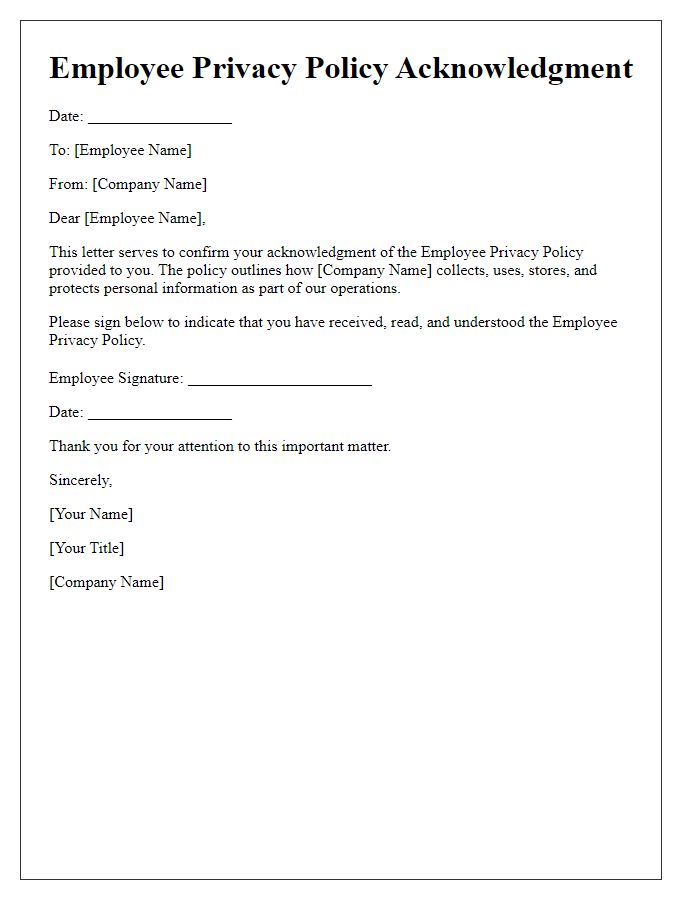
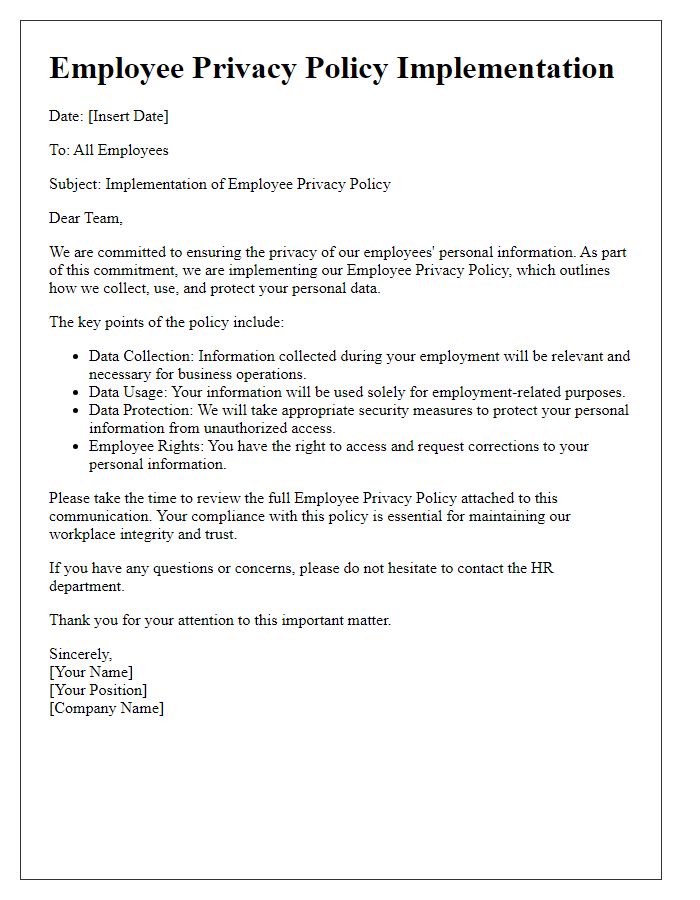
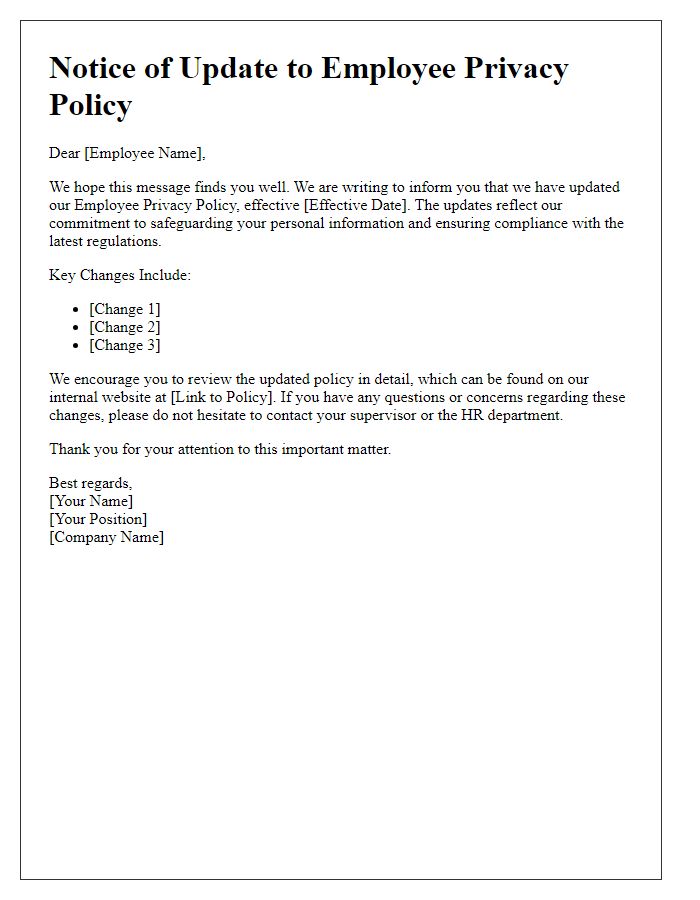
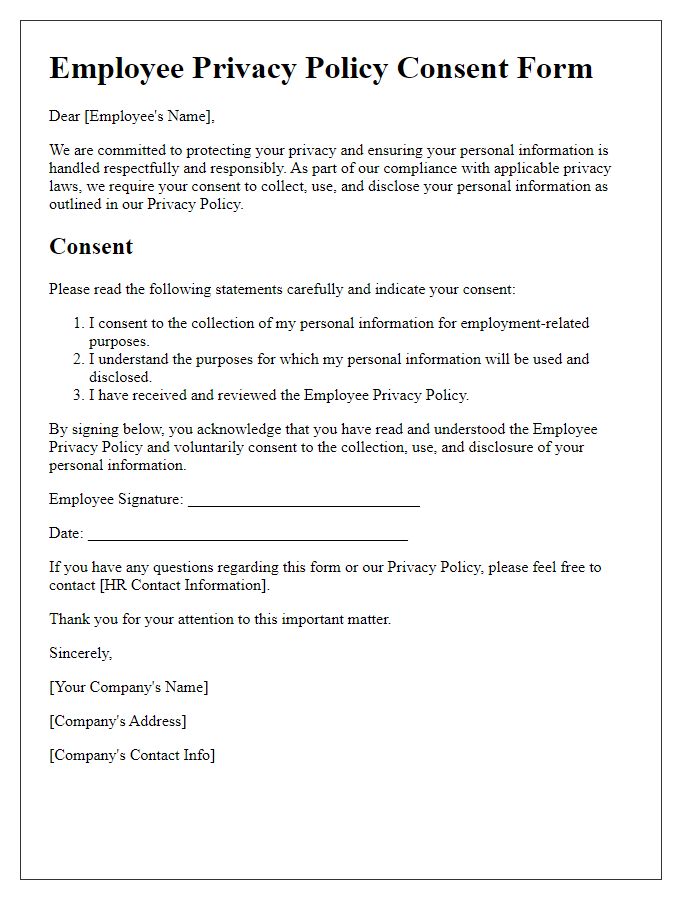
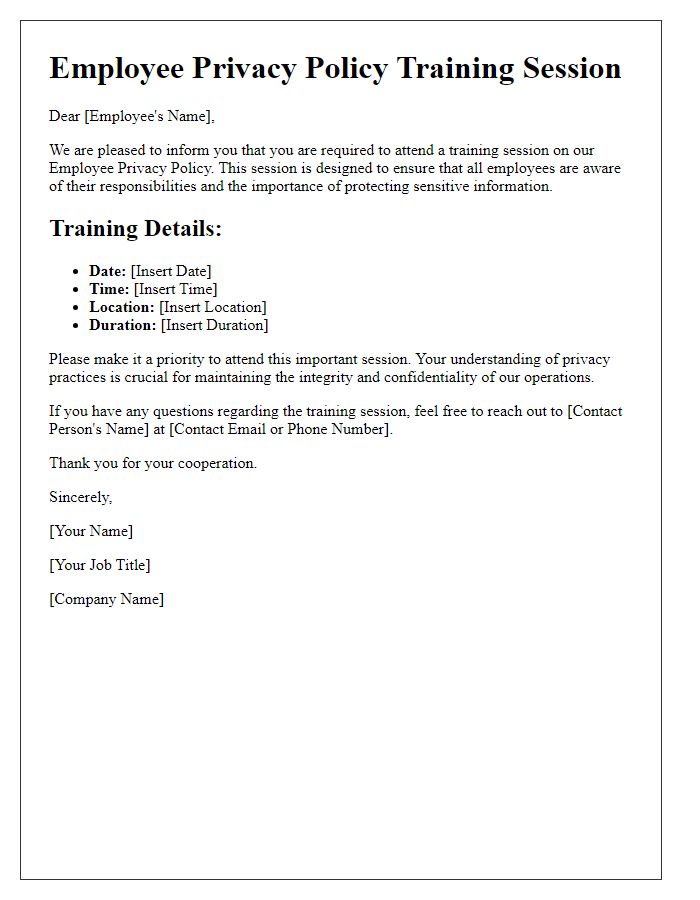
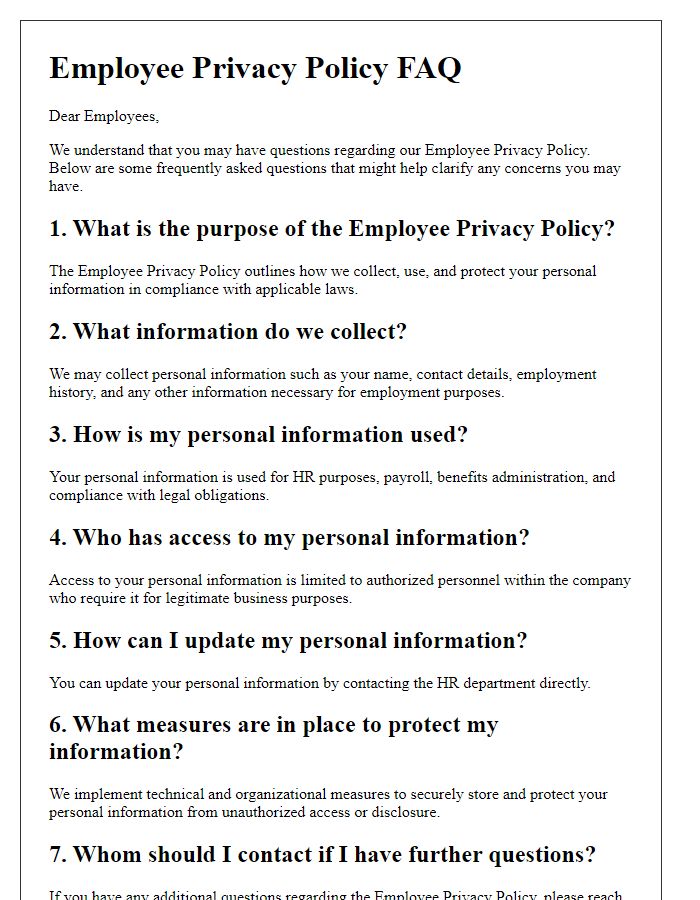
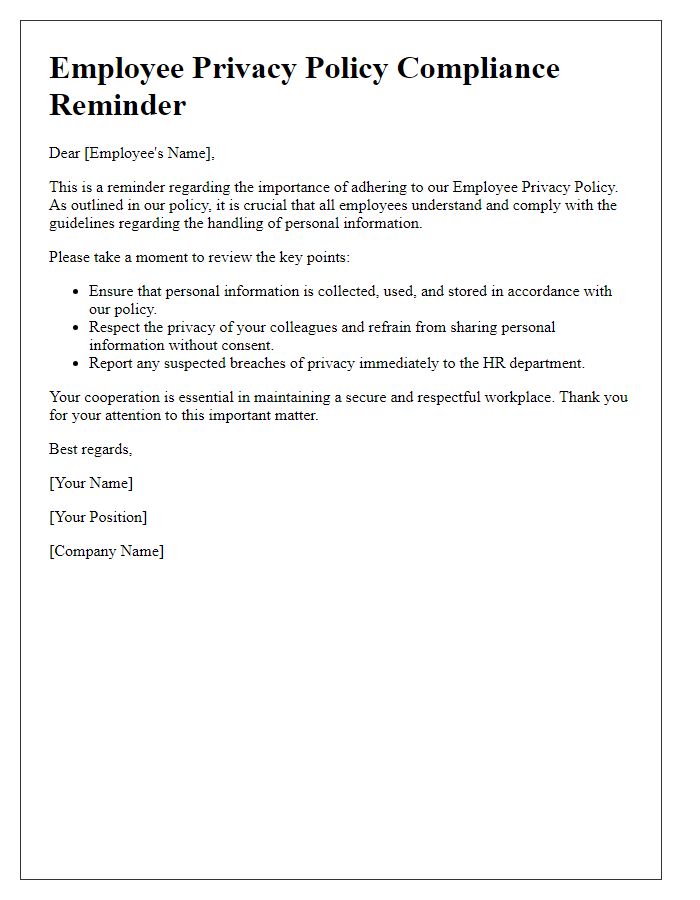
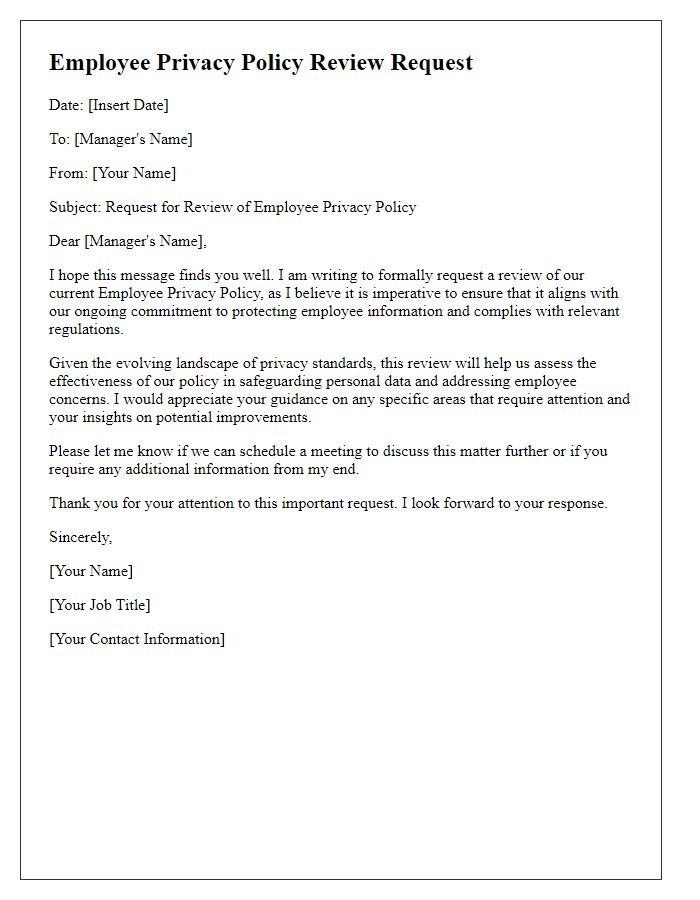
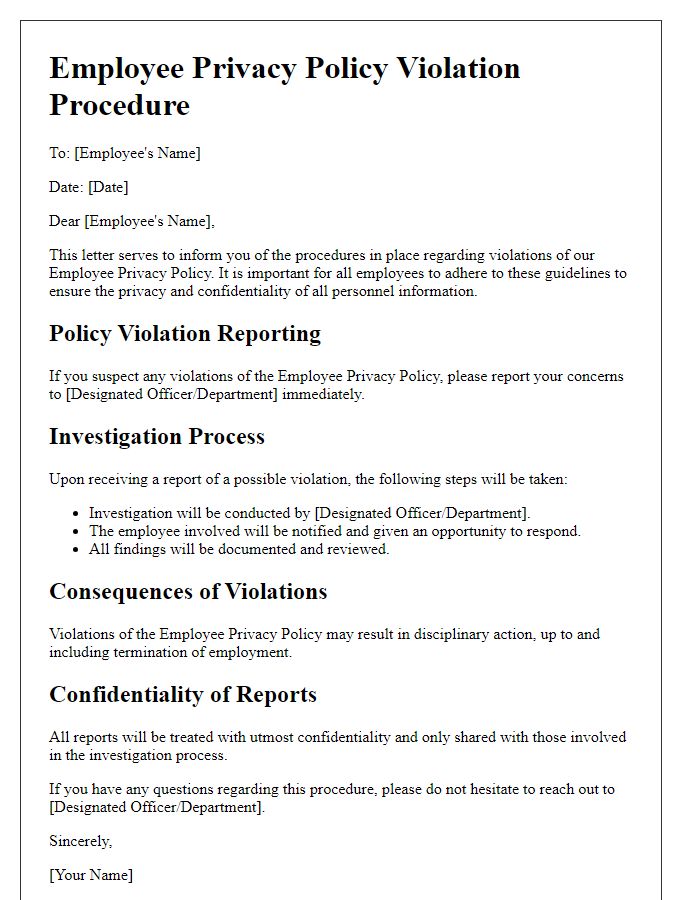


Comments